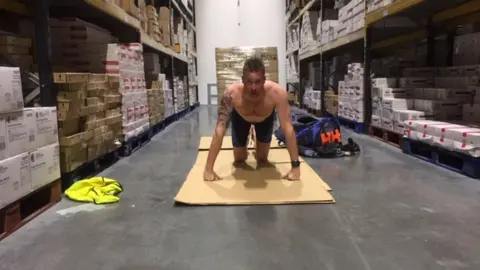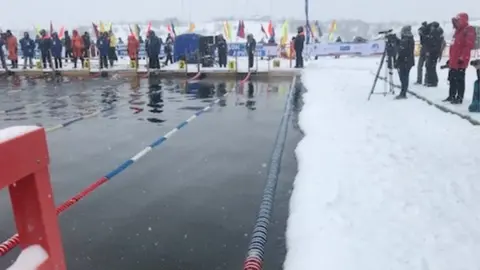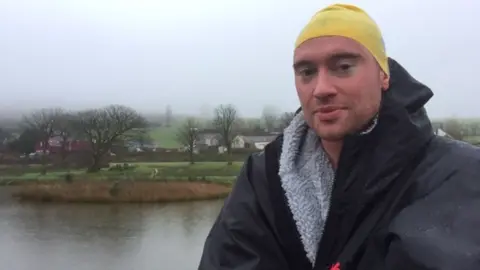The ice swimmer champions tackling frozen lakes
 BBC
BBCWhile most of us are wrapping up in coats, gloves and scarves to leave the house on chilly February mornings, one hospital worker is preparing to plunge into a near-freezing mountain-top lake.
Alistair Bell hopes to make his mark in the extreme sport of ice swimming.
His training for the British Ice Swimming Championships this weekend also involves exercises in a giant freezer at -22C temperatures.
"I come out of that freezer unable to feel my fingers and toes," he said.
"My fingers look and feel like sausages."
Occupational therapist Mr Bell, 33, from Carmarthen, competed in the world championships in Russia last year where they smash through a foot of ice before competing along 1,000m of frozen lake.
He achieved this in 19 minutes while the winners managed about 12 minutes.
He is the only Wales-based competitor in the British competition at Sandford Lido, in Cheltenham.
 Alistair Bell
Alistair Bell"The water temperature there was zero... I was way down the list of final results," he said.
"The morning training is all intended to build up to the physical challenge created by driving your body through the extremely cold water.
"I'm hoping these early morning swims will boost my time in the coming events."

Mr Bell treks to lakes, quarries and any cold stretch of water he can several mornings a week to test his times.
He has to arrange his training timetable around his work in helping trauma cases at Glangwili General hospital in Carmarthen.
The British championships in Gloucestershire are a stepping stone to next year's world championships in Poland, with Mr Bell hoping to be chosen for the British team of 10 to 15 swimmers.
However, cold-water swimming can be dangerous - and there is a significant risk of hypothermia when not done in a controlled setting.
There is also a risk from the body's acute cold shock response, which may affect the arm muscles while swimming and can lead to incapacitation and potential drowning within minutes if unsupervised.
